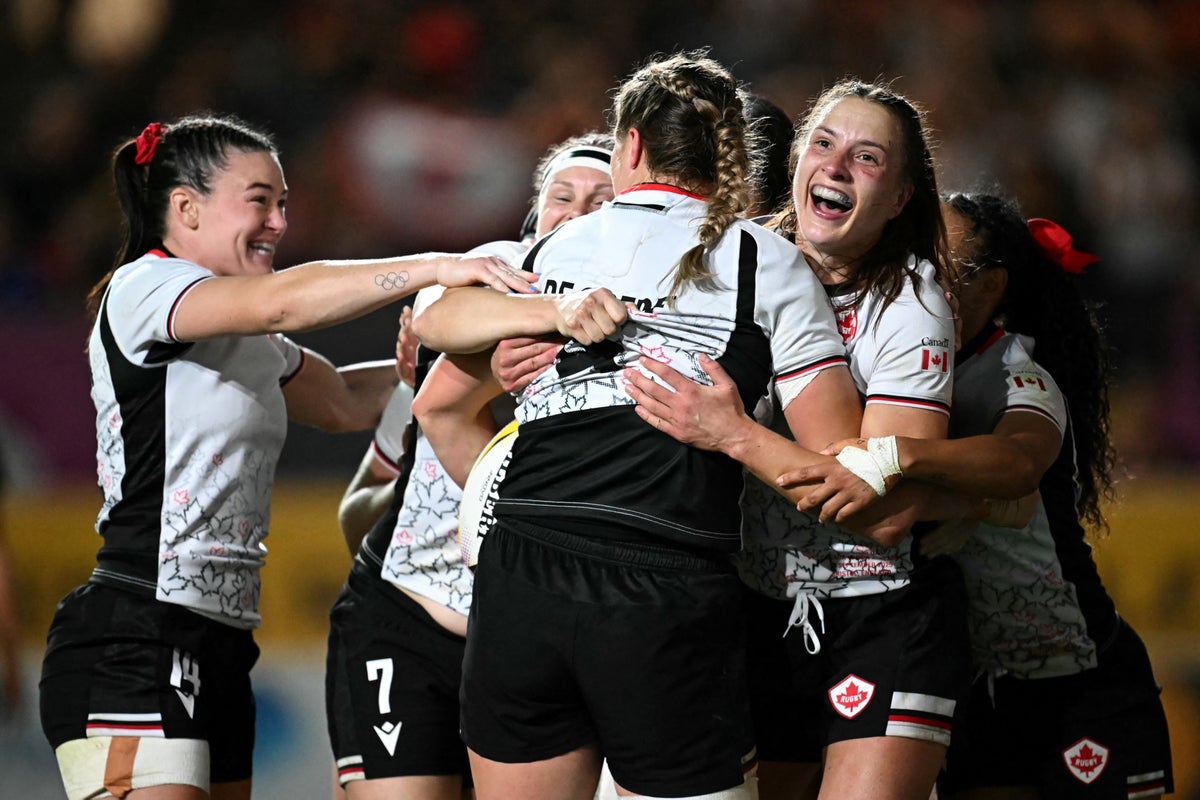The old saying goes that the hand that wields the knife does not wear the crown but this fabulous Canada team could yet prove the adage wrong. This was a most brilliant dethroning of the defending champions, the six-time World Cup-winning Black Ferns played off the park by a collective effort that may, in time, stand up to scrutiny as perhaps the finest in tournament history. A side for which a single silver sits as their landmark World Cup achievement may yet glitter with gold.
This Canadian victory may be a result that goes somewhat to form within the confines of this campaign but given the broader history, this was some win. Only once previously had New Zealand reached the semi-final stage and failed to lift the trophy; the Black Ferns always, inexorably, finding a way. As they stirred in the second half, some might have wondered if an improbable fightback was to come; but not here, not now, not with Canada so good.
At times it was like watching a great symphony orchestra, each element working with mellifluous majesty with every wave of the conductor’s baton precise and the percussive forwards to the fore. To say that it was a performance without errors would be overstating it – yet given the stakes, the occasion and the opposition, this was not too far from rugby perfection.
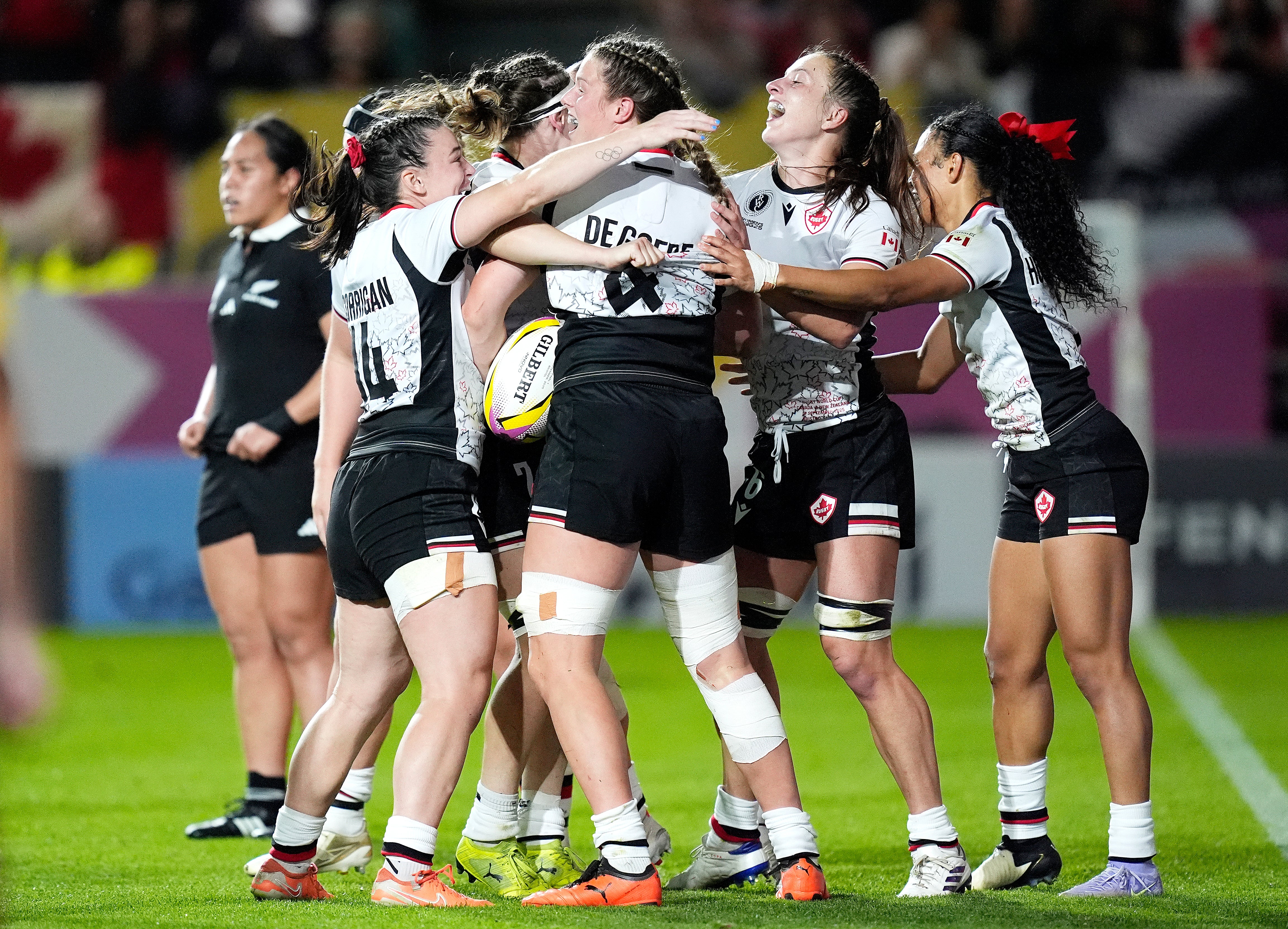
And so it is they, not New Zealand, that await England or France; gathered together at their team hotels, one wonders what each made of it. The Black Ferns, meanwhile, face the ignominy of the ever unpopular third-place play-off – curtain raisers in the double-header next weekend rather than centre stage in the final that follows. A side that had tasted defeat at just two of the eight World Cups they had entered must now contend with the ramifications and ruminations that will come with a third.
If a 22-19 win at last year’s Pacific Four Series had shown Canada that the Black Ferns are beatable, a 27-all draw in May had been evidence that the Canucks could mix it with the women’s rugby powerhouse on a more consistent basis. Not even their most ardent of believers would have expected a first 20 minutes that Canada so thoroughly dominated, though, the defending champions bettered in just about every aspect.
Canada were deliberate and disciplined defensively, keeping bodies on feet and not contesting at most breakdowns, and were purposeful in attack, throwing forwards at the fringes to test New Zealand’s close-to-the-ruck ramparts with some degree of early success. When advantage or opportunity arose, they were creative and clever, with fly half Taylor Perry unfurling a full array of spells from up her sorcerer’s sleeve.
A neat dummy and dart from Justine Pelletier capitalised on bright work from Alysha Corrigan off her wing after one Perry chip, while the No 10’s rainbow pass for Asia Hogan-Rochester enabled the Olympic silver medallist to fend off Renee Holmes for a second score. When Florence Symonds finished off an overlap on the right following a sustained series of 15 phases, the Black Ferns’ hopes of a three peat were disappearing into the rapidly darkening Bristol night.
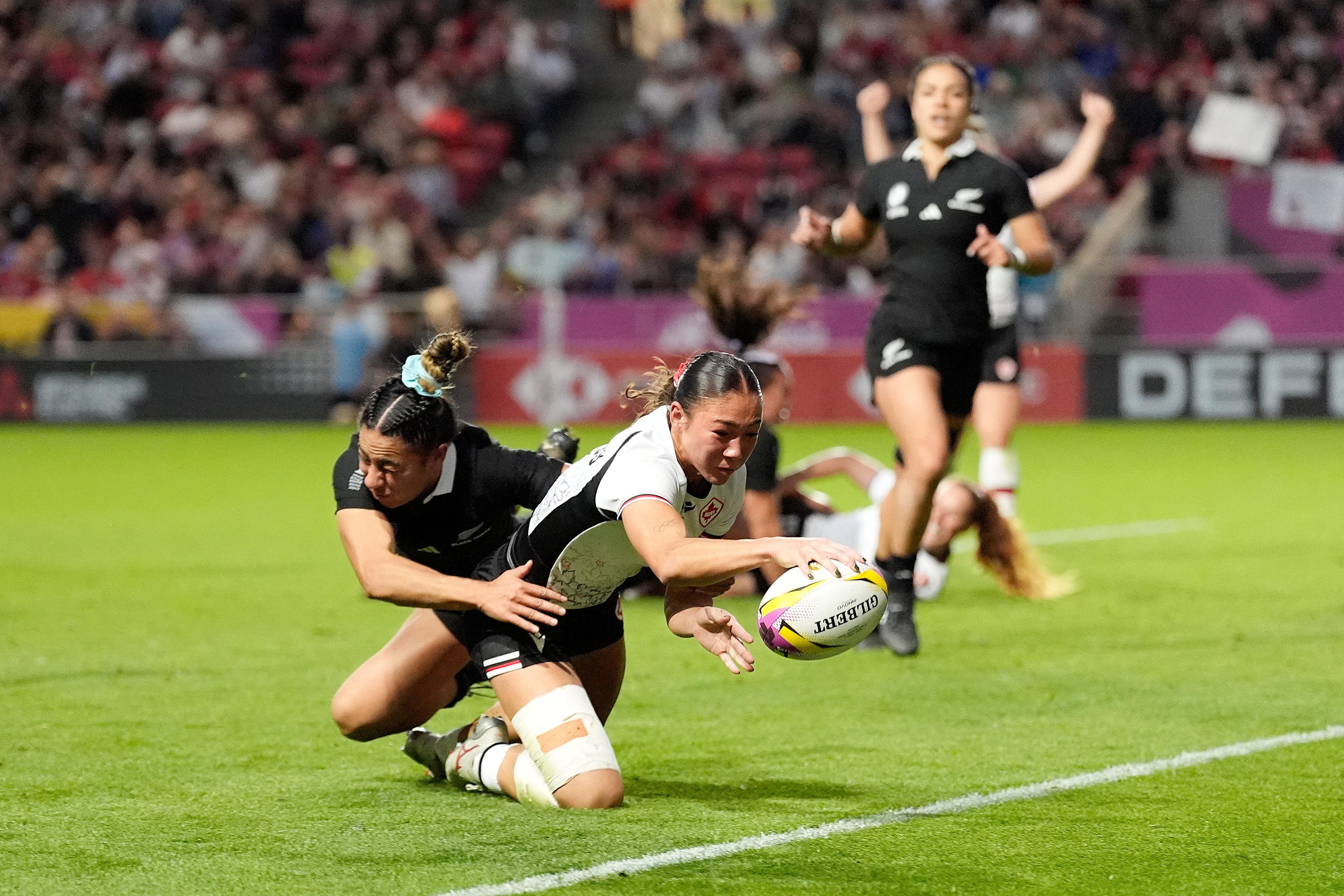
It took three bits of serious skill to get the six-time world champions going. Stacey Waaka’s reclaim of the restart was impressive enough before front-rowers Chryss Viliko and Georgia Ponsonby showed the soft skills and runaway speed that make both such a danger. Mighty tighthead Tanya Kalounivale completed the trifecta with a burly score from close range.
But increasingly it was looking like Canada’s evening. Pelletier – busy, buzzy and brilliant throughout – extracted an offload from the heavens, curling her right arm betwixt three defenders to send Sophie de Goede striding beneath the posts. Zero penalties conceded at half-time summed up a supremely smart, calm and collected performance.
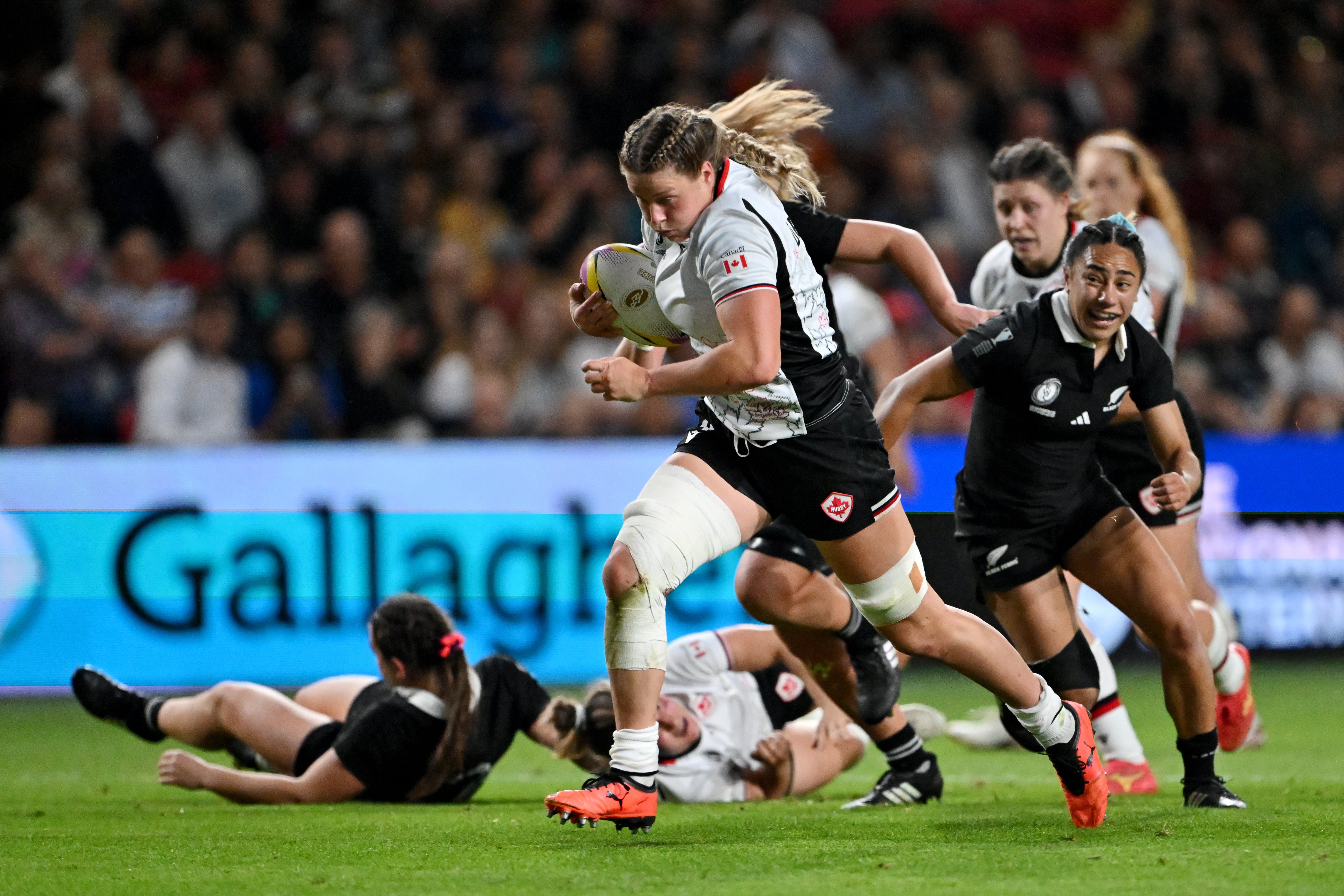
Not that one would expect anything less of this Canadian side. Much has been made of their need to crowdfund ahead of this competition; not enough of how their adverse circumstances have bound this group. Most of Kevin Rouet’s squad spend their lives thousands of miles from home, forced away to England seek the playing opportunities not on offer on native land. New Zealand may produce as many or more outstanding individuals but there could be no denying, on the evidence presented, which of the two nations has the better team.
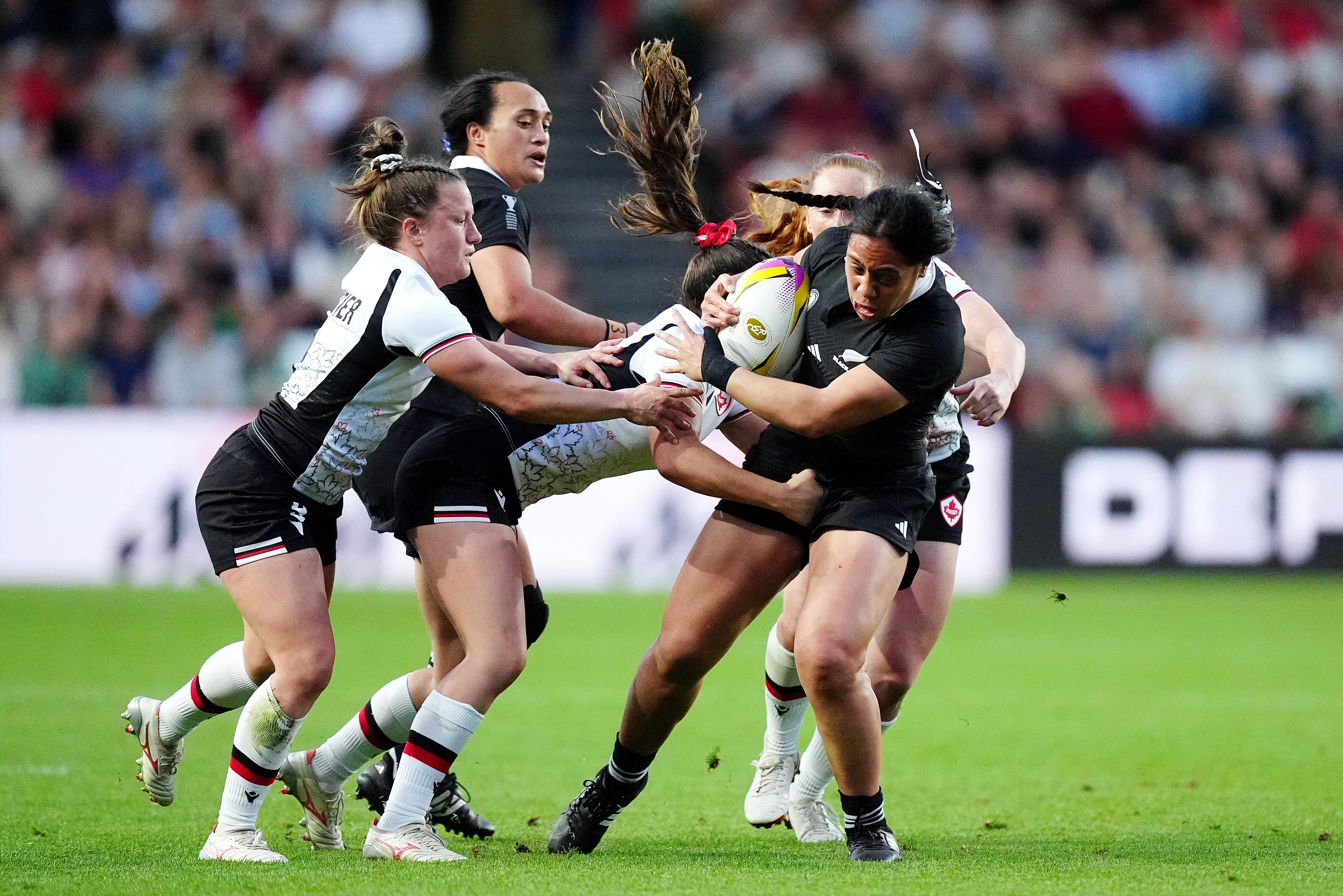
The New Zealand players gathered in a black mass on the half-time whistle, drawing on their experience to try to launch a rescue act. One was not immediately forthcoming; Alex Tessier’s delicate, deadly right foot step enabling the captain to hurry to a fifth try soon after the interval.
It swelled the lead to 24 points; surely even New Zealand were not capable of stirring from such depths? With the Black Ferns finally adjusting and going to their boot to swing the territorial battle, Liana Mikaele-Tu’u punched over from close range after a five-metre lineout, before Braxton Sorensen-McGee – continuing an excellent debut tournament at 18 years of age – scored her ninth try of the World Cup following a Ruahei Demant crosskick.
12 points, 15 minutes, the equation clear – but changed soon enough. A penalty under the posts, the boot of De Goede; three scores required for New Zealand again. They would snare not a single one, superwoman De Goede’s intercept epitomising up a supreme effort.


